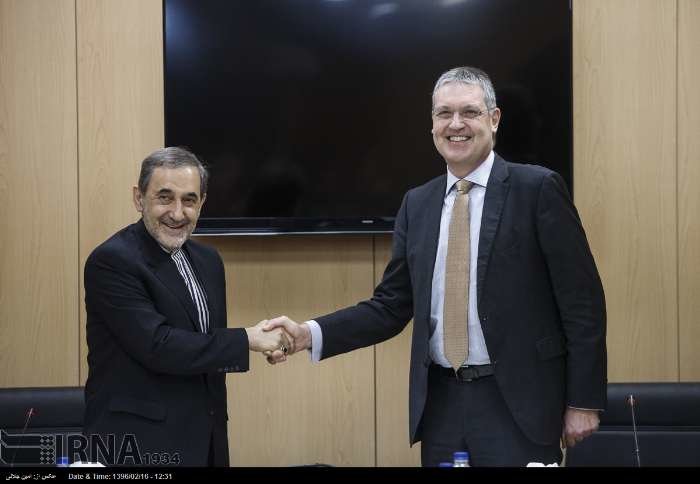Velayati says Iran-Germany ties are growing

TEHRAN - Ali Akbar Velayati, the senior foreign policy advisor to the Leader, said on Saturday that ties between Iran and Germany are growing well and meetings between the two countries’ officials prove it.
“Relations between Iran and Germany have a long history and we attach great importance to ties between the two countries,” he said during a meeting with Markus Ederer, state secretary at the German Federal Foreign Office.
Velayati also described the status of Germany in the European Union as unique.
Elsewhere, he said that some countries seek to further complicate crises in the Middle East region.
“The Islamic Republic of Iran can play an important role in line with international peace and stability” and prevent a “weakening and disintegration of regional countries,” the former foreign minister stated in an open reference to the ongoing conflict in Syria.
Iran has taken steps in countering terrorism with a view of guarding international peace and security, added Velayati who was Iran’s foreign minister for 16 years in the 1980s and 1990s.
For his part, Ederer said “constructive” talks between the two countries will help expand relations and settle regional crises.
‘Astana talks is most positive political development surrounding Syria’
On the sidelines of the meeting, Velayati told reporters that the Astana talks are one of the “most positive” political meetings on the on the six-year-old conflict in Syria.
“The three countries [Iran, Turkey and Russia] have the objective of ending terrorism and preventing disintegration of this country [Syria],” he said.
He also said that Iran and Russia defend the Syrian government and people and help them protect their independence and territorial integrity.
On Thursday Iran along with Russia and Turkey signed a document on creating safe zones in Syria. The document was signed at the end of the fourth round of the Syria peace talks in Astana, Kazakhstan.
Kazakh Foreign Ministry issued a statement on Friday according to which “the four security zones, include Idlib province and part of the provinces of Latakia, Hama and Aleppo, the area to the north of Homs, Eastern Ghouta, as well as Deraa and Quneitra provinces in southern Syria”.
According to TASS, Russian President’s Special Envoy on Syria Alexander Lavrentyev said that the de-escalation zones in Syria will be also closed to the U.S.-led coalition’s aviation.
NA/PA
Leave a Comment